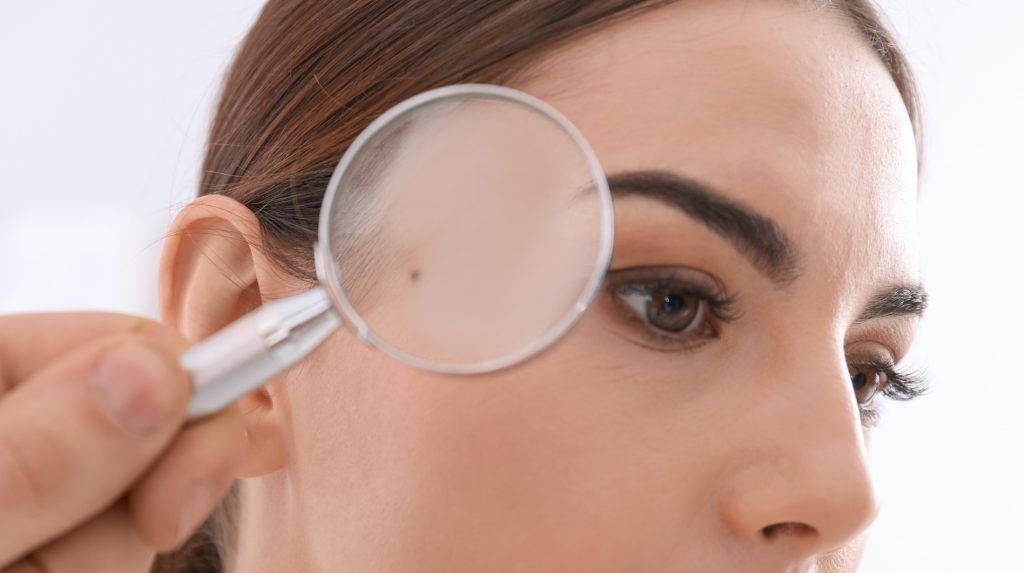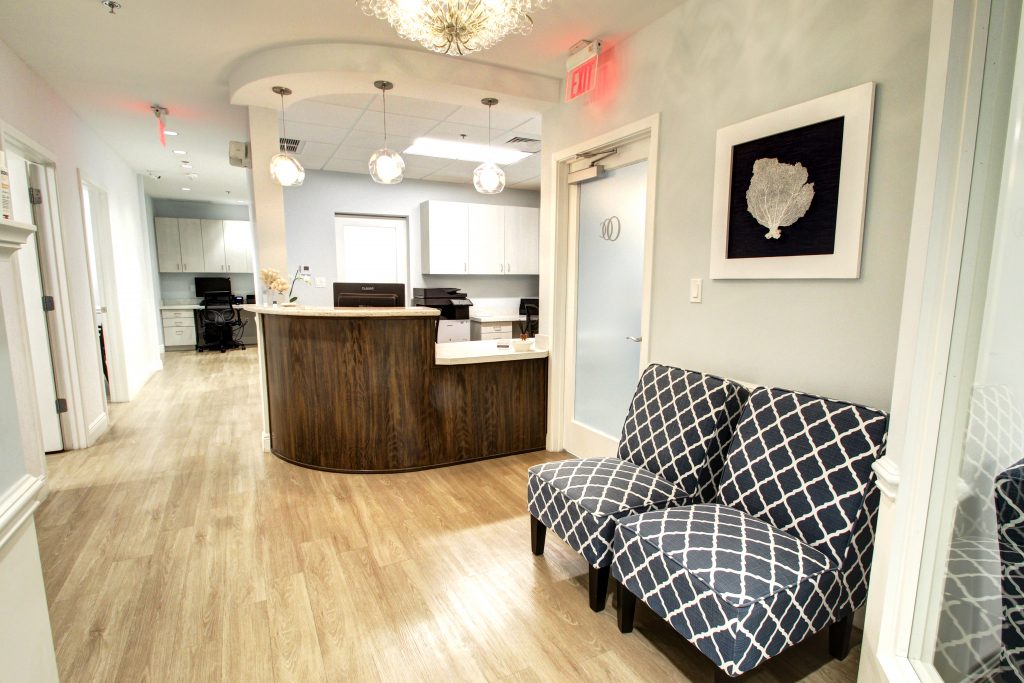Mohs Surgery
Skin cancer is a disease characterized by the development of abnormal skin cells that often spread throughout the body. There are three main types of skin cancer; basal-cell, squamous-cell, and melanoma. Though the mortality rate of skin cancer is relatively low, the condition should still be taken seriously. If you believe that you may be suffering from skin cancer, Mohs surgery may be an excellent choice for diagnosing and treating this condition.

What Is Mohs Surgery?
Mohs surgery is a procedure originally developed by Frederic E. Mohs in 1938. This technique is often hailed as the gold standard for the removal and control of basal-cell carcinoma and other skin cancer types. Mohs surgery is done by a dermatologist specially trained to remove skin cancers. Each procedure begins with a careful examination of the trouble area. Afterward, a tissue biopsy is taken to test for signs of malignancy. The cancer cells are removed layer by layer until the entire tumor is removed. This multi-step process allows the dermatologist to remove the cancerous cells entirely and conservatively leave behind the most amount of normal tissue. When the skin lesion is located in the midface or around the eye, the dermatologist will remove the skin cancer using the Mohs technique, place a patch over the defect and refer you to a trained, oculoplastic surgeon like Dr. Connor for meticulous reconstruction. Dr. Connor is chosen by and works closely with numerous Mohs surgeons throughout south Florida to help patients achieve their best cosmetic result following skin caner removal.
Who Can Benefit From Mohs Surgery?
Due to Mohs’ high cure rate, anyone showing early signs of skin cancer can benefit from this procedure. Only one surgeon is necessary for the Mohs surgery portion of cancer removal, taking the potential of pathologist-to-surgeon miscommunication out of the equation and reducing the risk of skin cancer recurrence. Mohs defects around the eye require meticulous reconstruction, with careful attention to the function and aesthetics of the eyelids. Dr. Connor has extensive training and experience in closing Mohs defects and will alleviate your anxiety by discussing a formal plan for your reconstruction with you.

How Does Treatment Work?
The precision of Mohs in detecting cancer effectively spares healthy tissue. During the procedure, only a small amount of skin around the cancer needs to be removed. If cancer is microscopically detected at the margin of the specimen, then a paper (or digital) map of the specimen is marked by the Mohs surgeon indicating location. This map is then used to remove an additional thin layer or “stage” of skin where the cancer is marked on the map. This process is called “microscopic mapping” and is exclusively done with a Mohs procedure. Thanks to the microscopic mapping technique, surgical risks and scarring are kept to a minimum.
How Can Mohs Surgery Help?
Mohs surgery has shown to have a cure rate of 97-99.8% for most basic skin cancers. However, this method is not suitable for all skin cancers. What makes this method unique is that it allows for a full examination of both the treatment area and the extracted tissue. Using this micrographic cutting technique exclusive to Mohs, your doctor can accurately determine the potential for the cancer to spread and recommend long term treatment.
Expectations During the Procedure
Skin cancer surgery is conducted only after a thorough consultation and assessment of the issue’s particulars. During the Mohs procedure, we will perform a surgical removal of the cancerous tissue and map it. Mapping the tissue involves freezing, cutting, and staining it to determine cancer severity. After the piece has been removed, possible tissue reconstruction may be done to reduce signs of scarring. The procedure is done under local anesthetic to minimize any pain and discomfort caused.
Recovery After Mohs Surgery
Depending upon the size of your treatment area, recovery from Mohs surgery may take up to 4-6 weeks. This length of time is necessary for your wound to heal completely. Though possible, infection, bleeding, and pain are uncommon. This surgical procedure involves the use of special sutures to minimize scarring and improve the natural healing process.
How Much Does Mohs Reconstruction Cost?
An average cost for Mohs reconstruction surgery ranges from $2,500-8,000 depending on the treatment area size and the amount of tissue that must be removed. Treating skin cancer may be an ongoing process and may require subsequent visits with your doctor. Therefore a consultation with Dr. Connor will be needed to get a thorough cost assessment. Dr. Connor can provide a cost estimate during an in-person consultation at our Palm Beach Gardens practice.
Does Insurance Cover This Treatment?
As a medical procedure, Mohs reconstructive surgery is covered by most insurance plans. However, with the many changes in insurance, our experienced staff will work with you and your insurance company to provide a comprehensive outline of anticipated costs for your surgery. Like most surgical procedures, certain aspects may not be covered by your provider. For more information, we invite you to visit our Palm Beach Gardens center.
If there were more stars to give I’d give them! This office, the staff, the Doctor himself are well above 5 stars. If you could have seen my eye after an in depth Mohs surgery, and you looked at my eye now after Dr. Connor’s work, you would be in complete AWE!! Dr. Connor is so skilled, professional, and puts you in complete calmness! His staff is the best I’ve ever been with. So I’m going with 10 stars!!
– Terri N.

Before and After Photos
If you would like to see before and after photos of our Mohs surgery results, click on the button below. WARNING: IMAGES ARE GRAPHIC.
Mohs Surgery in Palm Beach Gardens, Florida
Michael Connor, MD has been serving the Palm Beach Gardens, Florida community for many years. His breadth of surgical expertise makes him exceptionally qualified for the removal of lesions. For more information on what Mohs surgery can do for you, we invite you to contact Oculoplastic & Orbital Consultants today by calling (561) 845-6500 or filling out the form below.
REQUEST CONSULTATION


